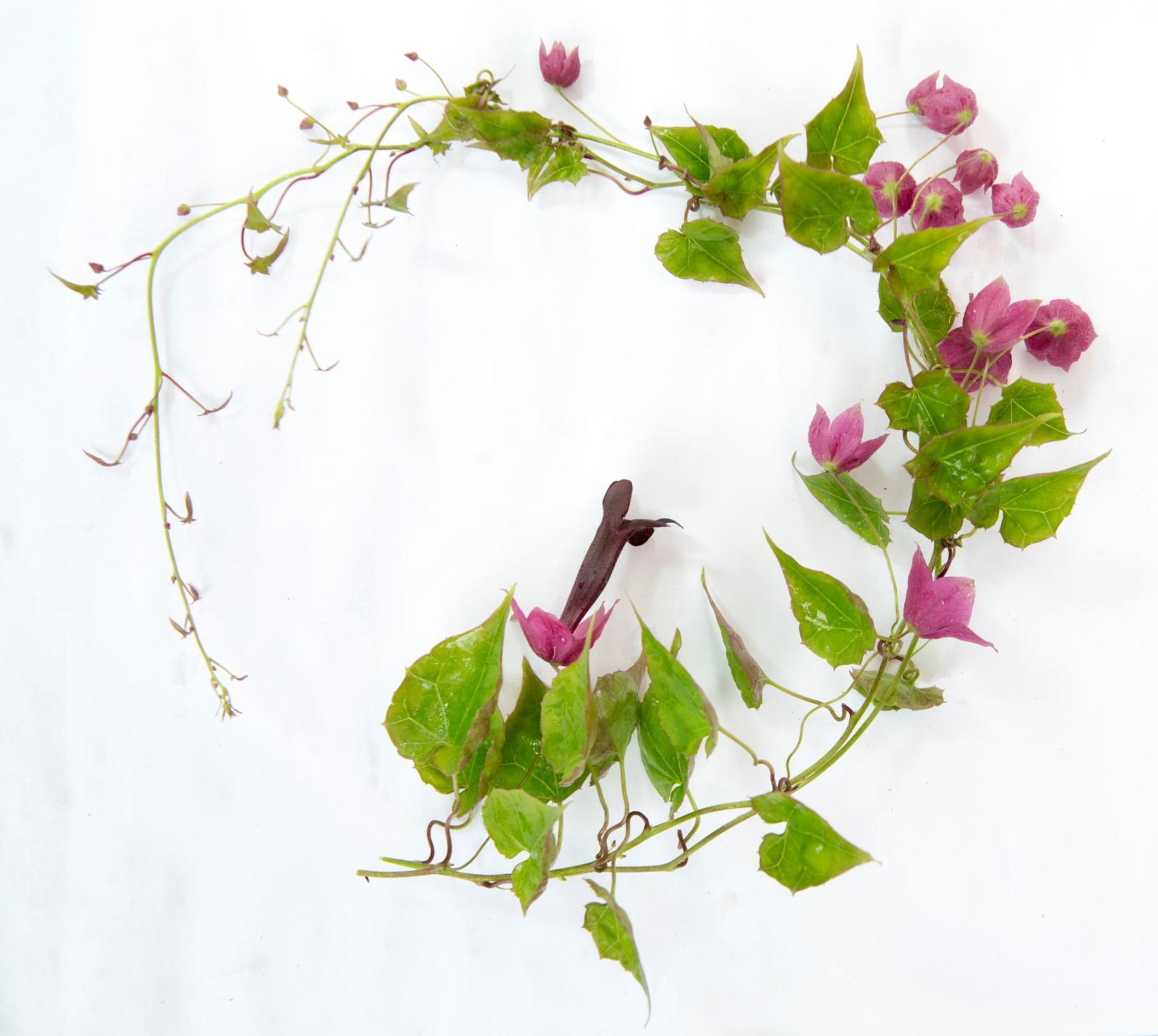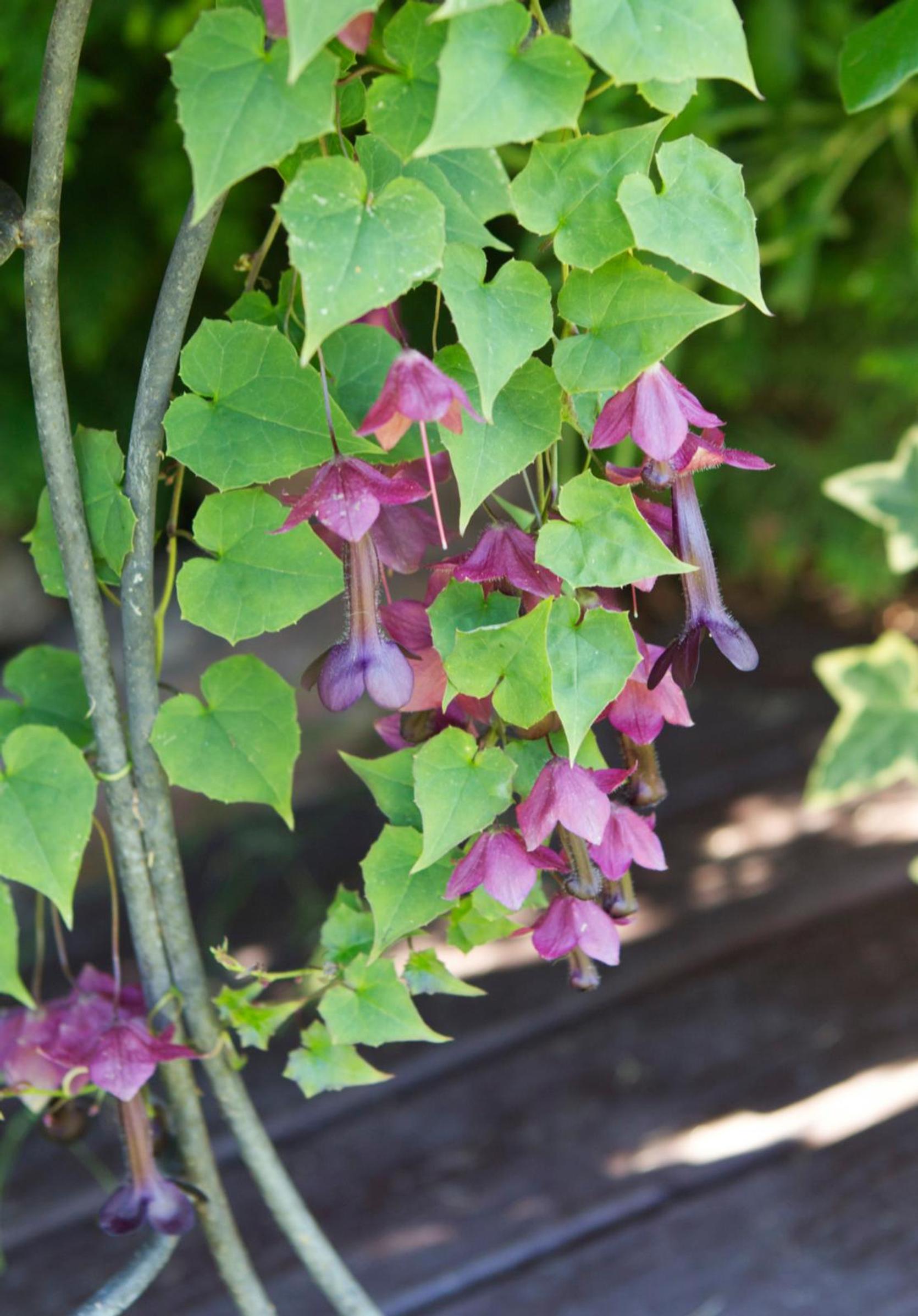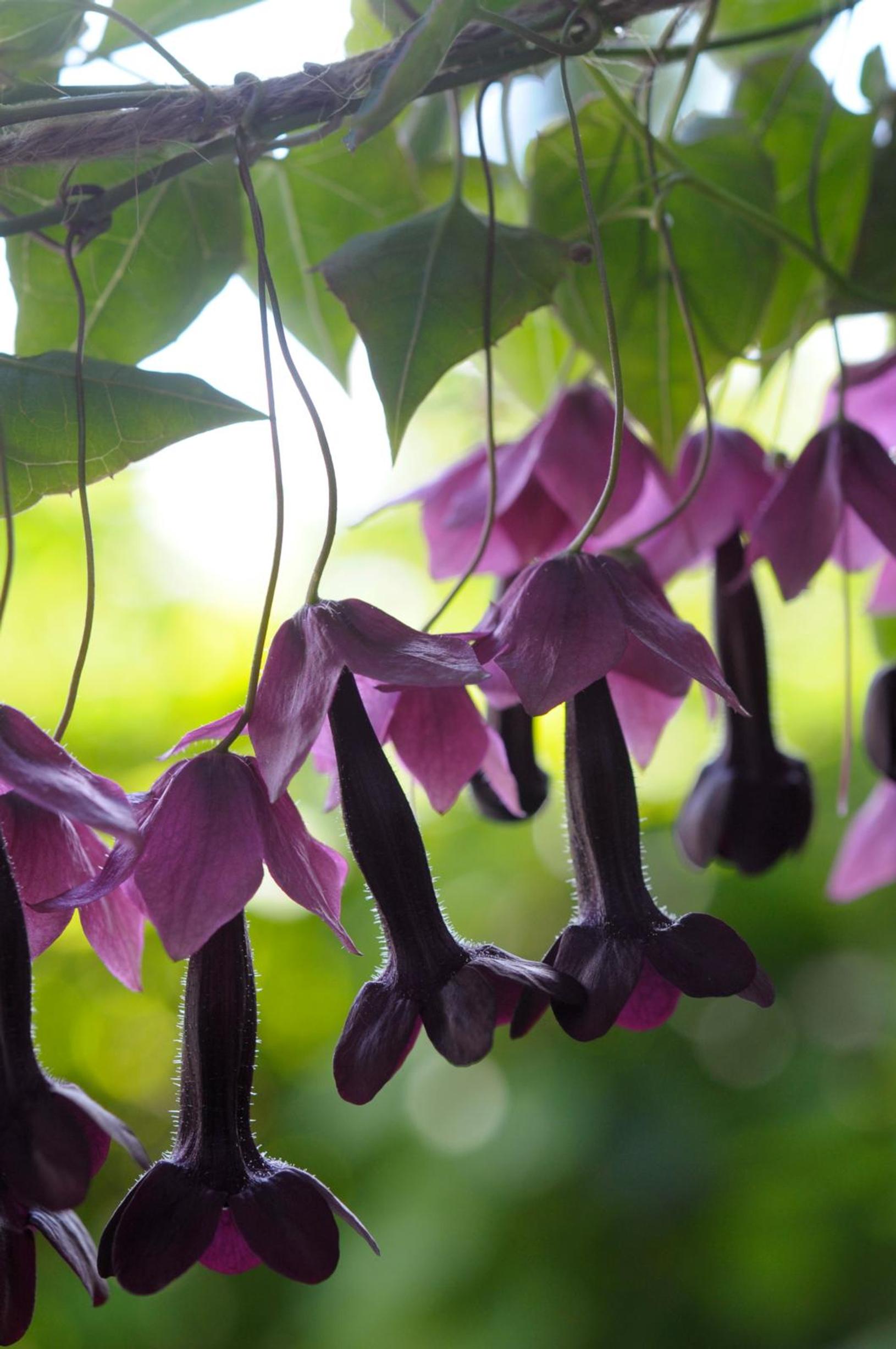
Purple bell vine blooms vibrantly on the terrace or balcony—discover tips for growing and caring for it
Purple bell vine is a wonderful choice as a climbing plant for balconies and terraces. Its distinctive traits include unusual blooms and dainty, heart-shaped leaves. In warm summers, a purple bell vine can grow up to three meters tall.
Purple bell vine (Rhodochiton atrosanguineum) takes its name from its calyces that look like little bells. At the center of each flower’s calyx is a dark, purplish corolla. This plant is a wonderful choice for a hanging basket or for training along a climbing trellis.
Purple bell vine grows vigorously over the summer and can reach up to three meters in ideal conditions. Since it originates from Mexico, it prefers warm summers. That’s why you shouldn’t move it outdoors if there’s a risk of frost overnight. Even temperatures below five degrees Celsius can damage the plant, and you’ll notice slower growth as a result.


Purple bell vine: growing and care
Planting and sowing
It’s easiest to buy purple bell vine as ready-grown seedlings. You can also grow it from seed, but sow in February or March because the seeds germinate slowly. They need light to sprout, so don’t cover them with soil.
Move seedlings outdoors only after all risk of frost has passed. Use a nutrient-rich potting mix for summer flowers. Purple bell vine typically starts blooming in June and continues until the first frost.


Growing location and light conditions
A sheltered, warm spot is ideal for purple bell vine. It thrives in full sun or partial shade, but can also manage in shade if the area is well protected. However, it will produce fewer blooms in shade than it does in bright light.
Watering, fertilizing, and other care
Water purple bell vine regularly, adding liquid fertilizer each time so it has the energy to produce long, flowering vines. If the vines don’t branch out, prune them to encourage new shoots.




